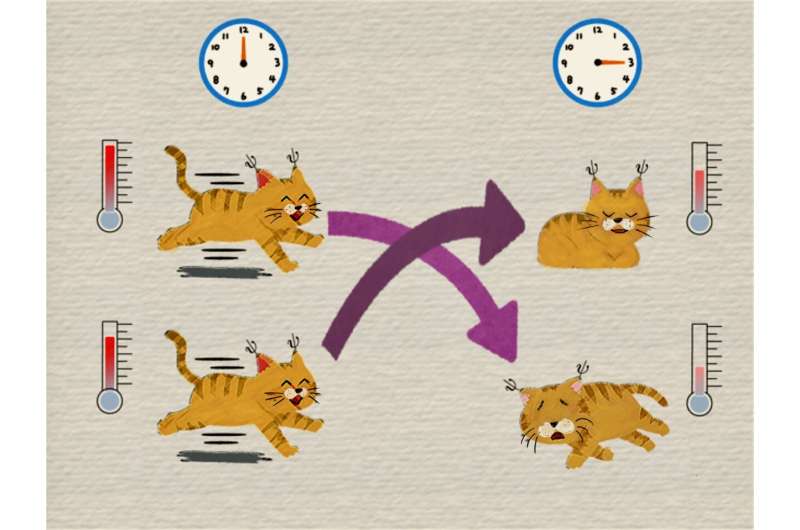This article has been reviewed according to Science X's editorial process and policies. Editors have highlighted the following attributes while ensuring the content's credibility:
fact-checked
peer-reviewed publication
trusted source
proofread
Does hot water freeze faster than cold water? Examining the Mpemba effect

Does hot water freeze faster than cold water? Aristotle may have been the first to tackle this question that later became known as the Mpemba effect.
This phenomenon originally referred to the non-monotonic initial temperature dependence of the freezing start time, but it has been observed in various systems—including colloids—and has also become known as a mysterious relaxation phenomenon that depends on initial conditions.
However, very few have previously investigated the effect in quantum systems.
Now, a team of researchers from Kyoto University and the Tokyo University of Agriculture and Technology has shown that the temperature quantum Mpemba effect can be realized over a wide range of initial conditions.
Their findings are published in the journal Physical Review Letters.
"The quantum Mpemba effect bears the memory of initial conditions that result in anomalous thermal relaxation at later times," explains project leader and co-author Hisao Hayakawa at KyotoU's Yukawa Institute for Theoretical Physics.
Hayakawa's team prepared two systems with quantum dots connected to a heat bath, one with a current flowing and the other in an equilibrium state. Both were quenched to a low-temperature equilibrium state, allowing the team to follow their time evolution toward a steady state regarding the density matrix, energy, entropy, and—most critically—temperature.
"When the two copies crossed each other before reaching the same equilibrium state—so that the hotter part became colder and vice versa in an identity reversal—we knew we had achieved the thermal quantum Mpemba effect," says co-author Satoshi Takada of TUAT.
"After analyzing the quantum master equation, we also discovered we had obtained the thermal quantum Mpemba effect in a wide range of parameters, including reservoir temperatures and chemical potentials," adds first and corresponding author Amit Kumar Chatterjee, also of KyotoU.
"Our results encourage us to explore the potential use of the quantum Mpemba effect in future applications beyond thermal analyses," reflects Hayakawa.
More information: Amit Kumar Chatterjee et al, Quantum Mpemba Effect in a Quantum Dot with Reservoirs, Physical Review Letters (2023). DOI: 10.1103/PhysRevLett.131.080402
Journal information: Physical Review Letters
Provided by Kyoto University





















